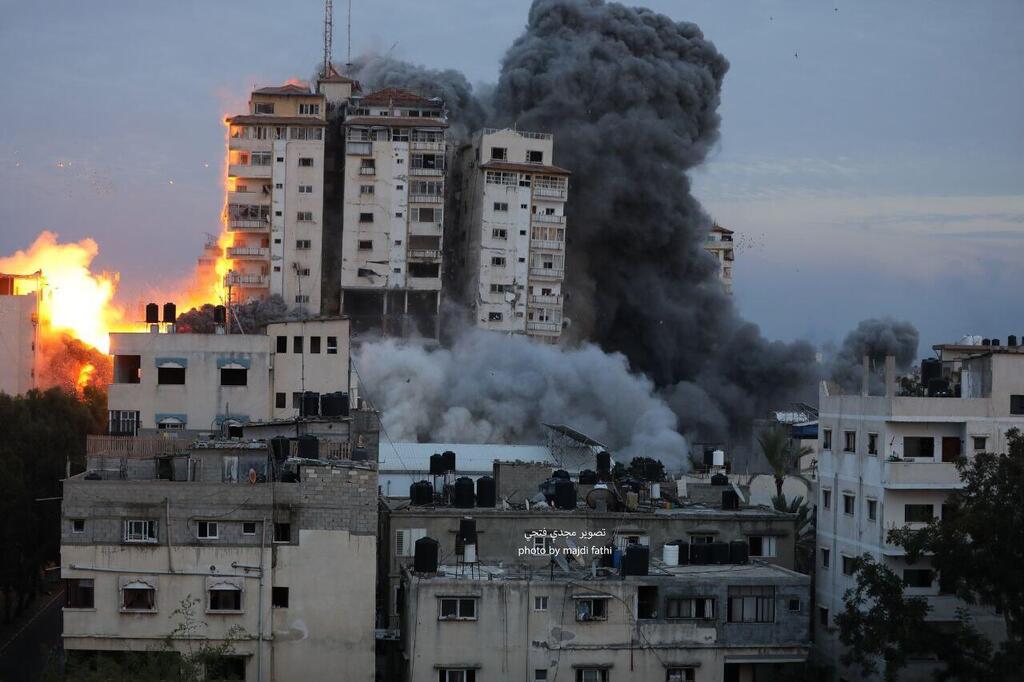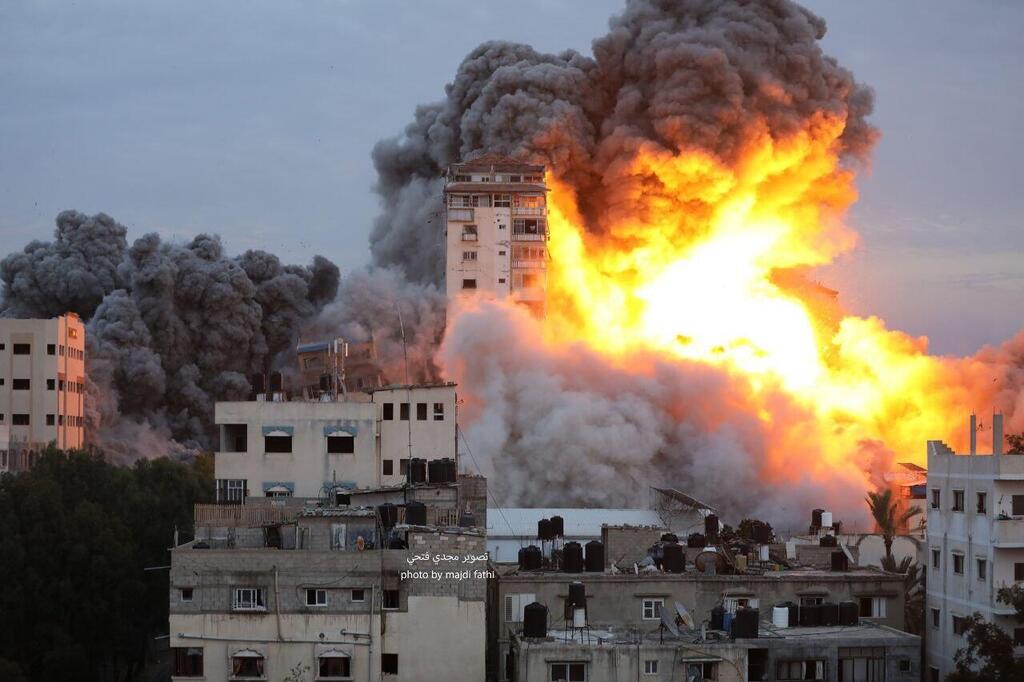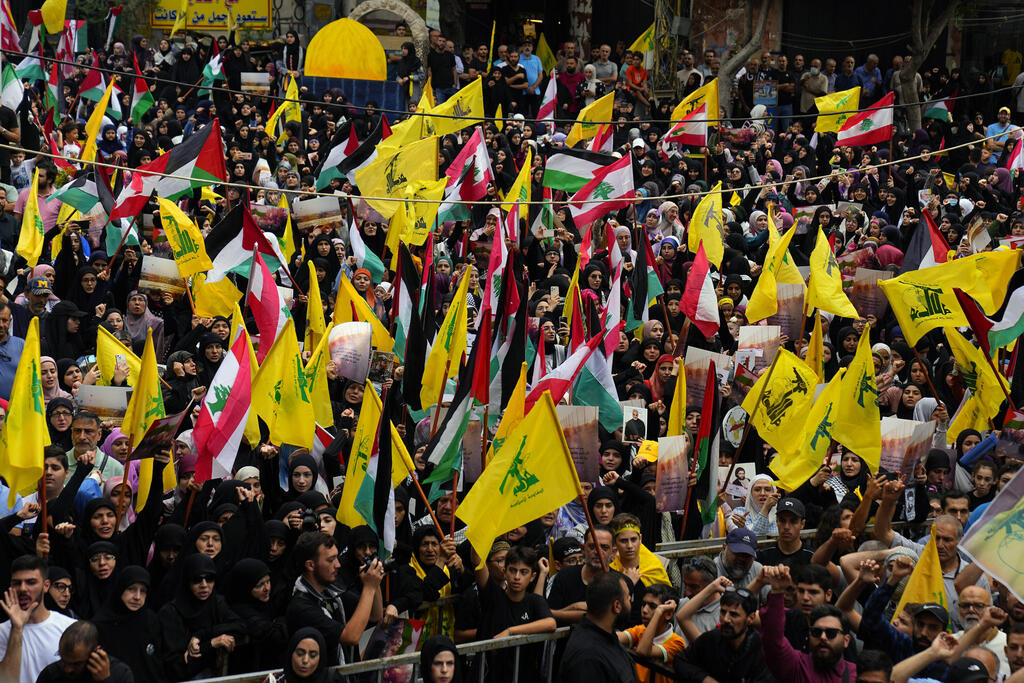Getting your Trinity Audio player ready...
It was only on Sunday night, almost two days since the war erupted and the IDF began enhancing the scope of their aerial bombardment campaign in Gaza.
Read more:
Up until that point, it seemed that the intelligence failure and lack of operational readiness that culminated in Israel being caught unprepared was accompanied by a limited and somewhat lackluster aerial campaign on the part of the Air Force. There are no mincing words here - The nation was expecting a much more forceful and resolute response. Taking the fight to the Palestinian terrorists in lieu of merely countering them.
It will take some time for Israelis to get over the shock this well-coordinated Hamas offensive brought on to the Israeli psyche. The IDF, much like everyday Israelis, felt the same shock. They simply weren't ready for this.
However, the IDF still has a reputation as one of the toughest and most tactically advanced fighting-force, on earth, thus creating an expectation of a more rapid and robust response. Once it became clear this was not just another rocket offensive from the enclave, something Israelis are well-versed in, the response should have been faster and stronger. Much stronger.
No, the implication here isn't that a full-frontal land assault on Gaza should have commenced right away, which the IDF isn't ready for anyway, but consider this amazing fact - 40 hours have elapsed since the war began, and Hamas terrorists were still running around in the south like it's an amusement park.
The IDF called up thousands of soldiers in multiple locations, while the fence, that just three days ago everyone thought could not be breached, is now protected by tanks, watch towers and Air Force jets looking on from above. The public, petrified enough as it is, is still required to keep an eye out for Hamas militants who snuck past everyone and could be making their way north on Israel's highways, perhaps planning an attack there.
And despite a widespread expectation that Israeli jets will reign hell of the enclave, there needs to be some sort of reckoning. This is a situation that can be described more as "Lebanese" than "Gazan".
Make no mistake, though. The Israeli Air Force, when operating at full strength, is capable of so much more than it's currently displaying. It can absolutely rain death and destruction upon every little apartment in the strip, should it choose to.
One of the most obvious effects of the second Lebanon war, held 17 years ago, is that it made Hezbollah chief, Hassan Nasrallah, gain a new understanding of what the IDF can bring when it sets its mind and full dedication to it. it took him years to rebuild the destruction the IDF has left behind, and he rarely ventures outside anymore, in fear for his life.
"This is not about surgical strikes and military infrastructure anymore," an IDF officer said about the war in Gaza. "This means we will obliterate civilian infrastructure as well. Apartment buildings will be toppled. Hezbollah feeds off our apprehension to land a decisive strike, which means we will exhibit the exact opposite to avoid opening a northern front."
IDF hammering Gaza
(Video: IDF Spokesperson's Unit)
Yes, the world is sympathetic toward Israel right now, led by a clear backing displayed by the United States, but this is temporary. The window of opportunity to act, will close, and before it does, Gaza needs to pay the kind of price that will bring about a sense of trauma so profound, that they will never so much as contemplate such action, again.
It is imperative to strike while the iron is hot because it won't be too long before international statements of sympathy will be replaced with pressure to end things as peacefully as possible. Should that occur before Hamas has felt the full might of the IDF, Israeli deterrence will end up like so many men, women and children - Lost among forgotten Gaza alleys, from Beit Hanoun all the way to Khan Yunis.
While President Biden's reassuring words about backing Israel are indeed comforting, it was accompanied by decisive action - The United States is set to deploy an aircraft carrier, ships, and jets to the eastern Mediterranean. Additionally, Israel will be provided with extra equipment and ammunition, as announced by the US Secretary of Defense, Lloyd Austin.
The USS Ford is widely regarded as the most technologically advanced aircraft carrier in the US fleet. It is currently stationed in the Mediterranean to participate in joint exercises with the Italian army. Reports suggest that in addition to the 5,000 personnel on board the aircraft carrier, warplanes and warships will also be deployed.
The White House's decision to do so serves as a clear message to Nasrallah: the United States will not remain passive if Israel comes under attack from the north. Moreover, the USS Ford's presence in the region enables it to provide military support in various ways, including intercepting weapon shipments to Hamas and conducting surveillance operations.
Israelis who reside on the northern tip of the country were evacuating toward central Israel. Unlike the area surrounding the Gaza Strip. Israel's northern borders carry no clear deterrent, and a war with Hezbollah could complicate things no end.
That said, the IDF did bolster its presence there since the war began, just in case. Hopefully, it will prove sufficient to swiftly repel a Hezbollah offensive. God help us if it doesn't.







